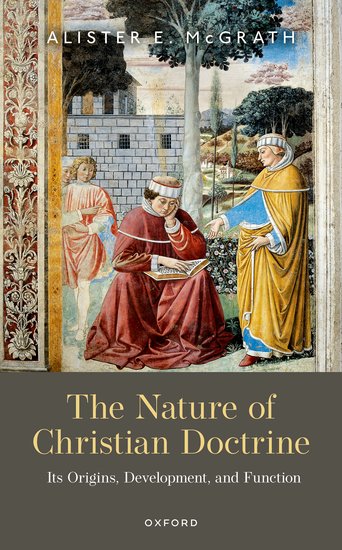Forthcoming Book, due January 2025
Why We Believe: Finding Meaning in Uncertain Times (OneWorld).
This book argues that believing is not only intellectually defensible but existentially necessary. It’s time to move on from movements and individuals who offer facile solutions in the face of life’s endless ambiguities, and face up to the critical importance of beliefs in shaping and sustaining meaningful human existence. Believing is a human stance to be embraced, not a liability that is to be eradicated. In the end, we are all believers, whether we like it or not, whether we are religious or secular, in that our lives and knowledge are grounded and shaped by assumptions and beliefs that lie beyond comprehensive empirical verification or rational proof. Living in this vast space of ambiguity and uncertainty is an art, a skill that we have to learn. Happily, as this book will show, it can be done.
New book, published May 2024
The Nature of Christian Doctrine: Its Origins, Development, and Function (Oxford University Press)

A groundbreaking account of the origins, development, and enduring significance of Christian doctrine, explaining why it remains essential to the life of Christian communities.
Noting important parallels between the development of scientific theories and Christian doctrine, Alister E. McGrath examines the growing view of early Christianity as a ‘theological laboratory’. We can think of doctrinal formulations as proposals submitted for testing across the Christian world, rather than as static accounts of orthodoxy. This approach fits the available evidence much better than theories of suppressed early orthodoxies and reinforces the importance of debate within the churches as a vital means of testing doctrinal formulations.
McGrath offers a robust critique of George Lindbeck’s still-influential Nature of Doctrine (1984), raising significant concerns about its reductionist approach. He instead provides a more reliable account of the myriad functions of doctrine, utilising Mary Midgley’s concept of ‘mapping’ as a means of coordinating the multiple aspects of complex phenomena. McGrath’s approach also employs Karl Popper’s ‘Three Worlds’, allowing the theoretical, objective, and subjective aspects of doctrine to be seen as essential and interconnected.
We see how Christian doctrine offers ontological disclosure about the nature of reality, while at the same time providing a coordinating framework which ensures that its various aspects are seen as parts of a greater whole. Doctrine provides a framework, or standpoint, that allows theological reality to be seen and experienced in a new manner; it safeguards and articulates the core vision of reality that is essential for the proper functioning and future flourishing of Christian communities.